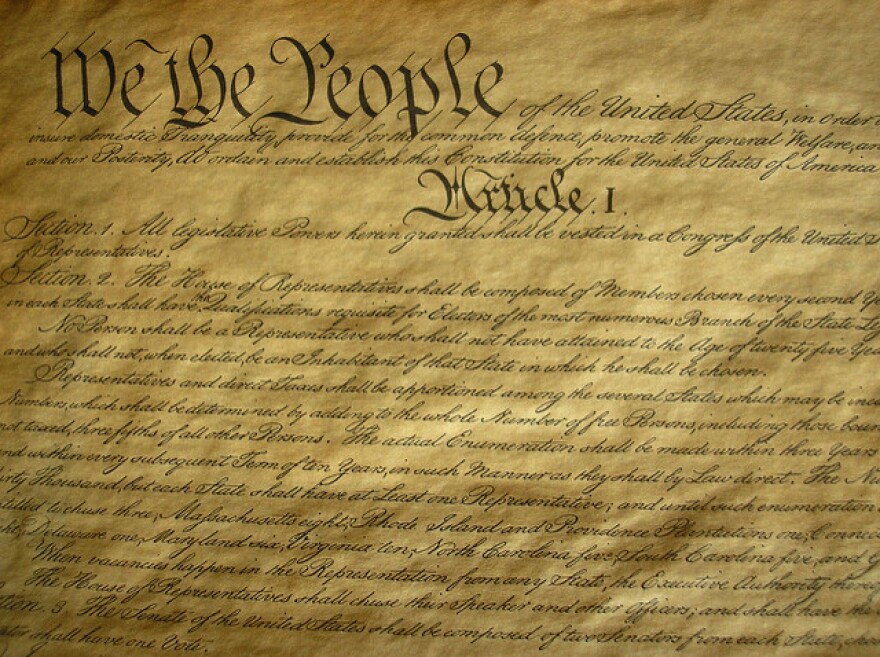American Promise is a national organization based in Concord that's working to get states to support a twenty-eighth amendment to the U.S. Constitution. The amendment would reverse Citizens United, a 2010 Supreme Court decision that ruled political spending is a form of free speech. The decision also led to the rise of political funds, called Super PACs, that can spend infinite amounts of money on campaigns. And the corporations and unions that donate to Super PACs don't always have to disclose how much money they give.
Ben Gubits, American Promise’s political director, says Citizens United makes politics unfair.
“If we have unchecked political spending by corporations, unions, wealthy special interest groups, it’s essentially silencing the voices of average citizens that don't have the same seat at the table or the same voice in our democracy as the large donors do,” Gubits said.
Gilbert said 19 states, including Massachusetts, are on the record opposing Citizens United. Ballot Question 2 would make Massachusetts the first state to take action.
If passed, the law would create a 15 member commission to study Massachusetts campaign finance. The commission would also draft the text of a national constitutional amendment to overturn the Citizens United decision.
American Promise relied on volunteers to get the question on the ballot. Semi-retired teacher Ann Shea from Sandwich gathered petition signatures at grocery stores in Hyannis. Shea said Citizens United set a dangerous precedent by putting people and organizations on equal footing.
“Basically, what the Supreme Court said is that these artificial entities have the same rights as human beings to freedom of speech,” Shea said. “And the only way that you can reverse that is with an amendment to the Constitution.”
Shea said she also feels Citizens United drowned out individual voices in politics.
“Who are you going to pay attention to?” Shea said. “You going to pay attention to my single vote that comes up every two years or so—or are you going to pay attention to these people who are financing your campaign?”
But for others, corporate speech is a step toward equality. Paul Craney of the Massachusetts Fiscal Alliance, a conservative advocacy group, said he thinks Shea’s fears about unchecked corporate spending are unfounded.
“This notion that the well-heeled are influencing our elections for outcomes that they want is actually not really happening as much anymore,” Craney said. “You're seeing more and more small dollar donations being used across the country to fund candidates they prefer.”
Research from the Center for Responsive Politics, a group that tracks campaign spending, backs him up. It shows candidates in 2017 national races raised hundreds of millions more in individual donations than in contributions from big, unlimited political funds. However, the center's research also points out Citizens United, and decisions like it, make political spending more secretive.
It's worth noting though that no organization has formally campaigned in opposition of question two. Craney said that's because any measure aimed at limiting speech is bound to be unsuccessful anyway, so fundraising would be a waste of time.
“It's just not a good use of anyone's money,” Craney said. “That's just never going to fly in Massachusetts.”
If Question 2 does pass, there would still be a long way to go before getting an amendment to the U.S. Constitution and overturning Citizens United. Two-thirds of Congress, and then two-thirds of the states would have to approve the political finance commission's draft amendment. Ben Gubits, of American Promise, says he knows making that kind of national change won't be easy.
“Certainly, it will be an uphill battle as members of Congress have a hard time agreeing on where to go to lunch let alone fixing huge things like campaign finance reform and corporate rights. But we think the support among the voters is there.”
If Question 2 passes, the political finance Commission's first report would be due on Dec. 31, 2019.







